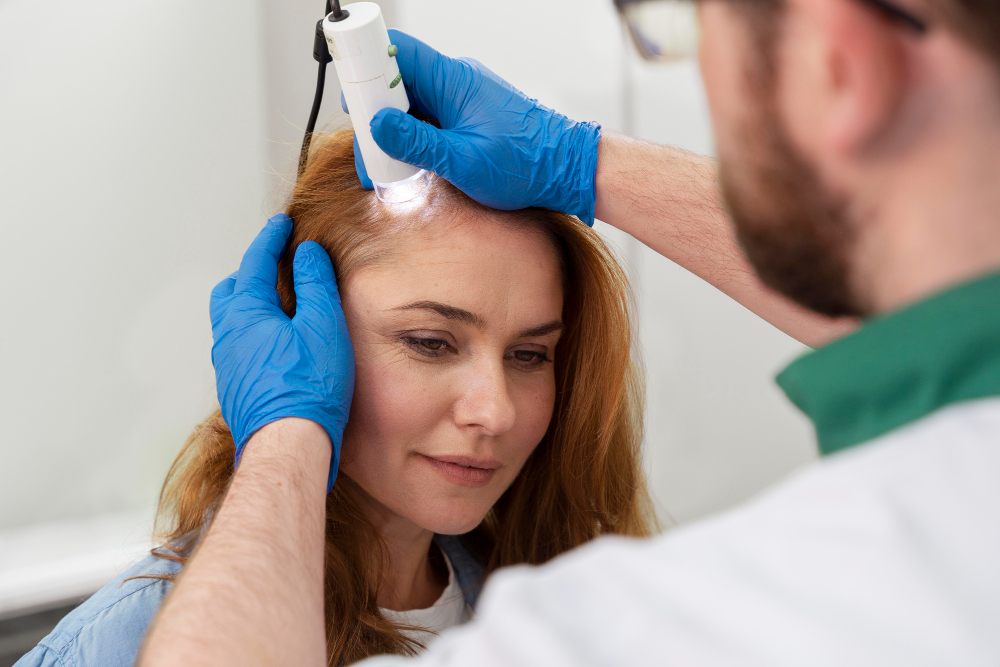- Home
- Hair Thinning

Hair thinning refers to a gradual reduction in hair density, leading to visibly sparse or fine hair. Unlike hair loss, where hair falls out in patches, hair thinning occurs more evenly across the scalp. It can affect both men and women and often begins subtly before becoming more noticeable.
Causes of Hair Thinning
Genetics:
Hereditary factors, such as male or female pattern baldness, are common causes of hair thinning. If hair thinning runs in your family, you’re more likely to experience it.
Hormonal Changes:
Hormonal imbalances caused by pregnancy, menopause, or thyroid issues can lead to thinning hair. For men, a hormone called dihydrotestosterone (DHT) can shrink hair follicles.
Nutritional Deficiencies:
Lack of essential vitamins and minerals, like iron, vitamin D, or protein, can weaken hair strands and slow hair growth, contributing to thinning.
Stress:
Chronic stress disrupts the hair growth cycle, causing more hairs to enter the shedding phase prematurely, leading to noticeable thinning.
Treatments for Hair Thinning
Medications:
FDA-approved treatments like minoxidil (Rogaine) can stimulate hair growth and slow thinning.
Lifestyle Changes:
A balanced diet, regular exercise, and managing stress can improve hair health.
PRP Therapy (Platelet-Rich Plasma):
PRP uses your blood’s platelets to promote hair growth by stimulating inactive hair follicles.
